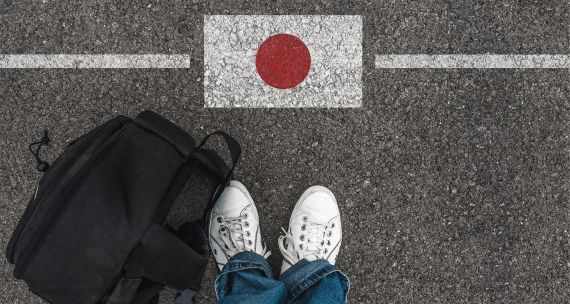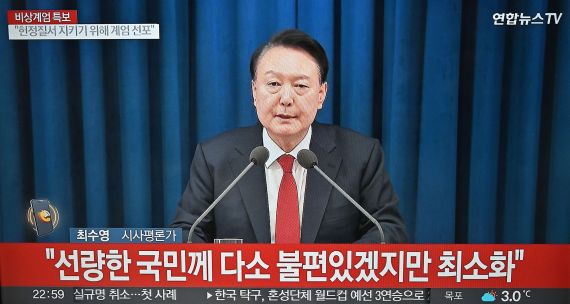At a time of high economic uncertainty, social tensions, and radical changes in the political landscape globally, the inaugural Paris Peace Forum (PPF) made a timely and bold statement about the urgency of finding solutions to failures in global governance. This new world event transmitted a message of hope and initiative to global leaders about the power of collaboration among actors from all levels. The significance of a multilateral approach to global challenges was a common theme at the November forum.
Inefficient management on global issues such as migration, security, trade, and the environment has contributed to rising inequality, populism, trade disputes, and hostile political interactions among major world powers. We need to bridge the divide on these polarizing issues by being inclusive and finding common ground in the pursuit of sustainable solutions. The Paris Peace Forum was a great start to a journey that must include engaged dialogue around today’s most pressing issues.
While we as global citizens face similar fears and generally agree on the issues that need to be addressed, the top-down approach currently in place is alone inadequate in resolving global shortcomings. Migration, for example, is at the forefront of global debate, and yet political leaders approach this issue in their own self-interest. This is exactly what Enrico Letta, the former Prime Minister of Italy and Dean of the Paris School of International Affairs, underscored during his panel discussion at the PPF when he referred to European political leaders who deliberately resist solutions to migration in order to heighten tensions and fear in order to gain votes. Clearly, it is crucial that we take collective action on matters like migration that cannot be resolved nationally.
The massive movement of refugees due to conflicts, climate change, and economic poverty has led to increasing pressures on government resources and capacity. Nation-states are confronted with a common struggle due to the lack of a comprehensive migration management system bridging the local, regional and global. With the lack of a cohesive system for dealing with today’s historic migrations, we begin to see sociopolitical unrest and aggression, and too often, human rights violations.
Ahunna Eziakonwa, the UN Development Programme’s Regional Bureau for Africa, reminded attendees of the PPF that migration is not a new phenomenon. “Mobility didn’t start today, it’s a historical part of humanity,” Eziaknowa said. Studying the history of migration and the contributions it has led to could provide us with insights in dealing with the issue today. In fact, it is important to change the narrative completely, and no longer frame migration as an underlying societal problem. US President Trump and other political entrepreneurs blame immigrants for the pain that the ‘majority’ is facing as a result of failures in globalization. We need to shift the framing of this policy ‘problem.’ This can be done by clearly defining the root causes, as they are multiple, and addressing the issues separately – potentially turning a ‘problem’ into an opportunity.
The pain and anger of those adversely affected by inequality is real and heard. But in order to shift the rhetoric of immigrants as a problem, the economic benefits migrants bring to a country need to be highlighted. Concrete facts such as rises in GDP and research-supported evidence should be presented to the public. Immigrants often work across sectors in less desirable positions and contribute to the growth of the economy by paying rent, making purchases, and even starting businesses that generate further employment.
Additionally, we cannot disregard the moral duty of protecting individuals’ human rights, particularly of those fleeing conflict or political persecution. Immigrants must be provided with legal pathways to enter countries of refuge in ways that minimize risks, and policies should ensure they are provided with equal opportunities to thrive. National governments should collectively leverage diplomatic measures to reduce tensions in war-torn and politically-sensitive sending countries. This clear and cohesive pro-immigration rhetoric is key to ensuring consensus in building public democratic support.
Reflecting on the situation of the Rakhine state in Myanmar, nearly 700,000 Rohingya refugees who fled to Bangladesh have caused mounting pressure on the social, logistical and financial capacity of that government. With the lack of an immediate, internationally co-ordinated response, the crisis threatens to become insurmountably worse for the region, and the Rohingya. It is crucial to act cohesively at a global scale. Apart from providing the necessary humanitarian aid, it is a global responsibility to empower the Rohingyas with the right to a citizenship then guarantee them protection before considering their repatriation. We need to think about how to reconcile these tensions and others that arise from differences in culture, language and religion. There were numerous projects at the Paris Peace Forum with innovative ideas on solutions to peace and security such as Peace Village, 1000 Abrahamic Circles, Innovation in Conflict Prevention, and International Gender Champions among many others.
In the bigger picture, it is time we turn to different methods of addressing global challenges. Canadians can prevent the rise of nationalist populism and xenophobia by engaging all levels of society. Grassroots activists can use social media as a powerful tool to better inform the public on issues of local, regional, and global importance. Youth and universities should be encouraged to connect with other students around the world to participate in platforms that allow for meaningful debates on global challenges. These efforts can be facilitated by national leaders. On a political level, it is important to promote cultural exchanges to reduce tensions amongst communities. This will build trust and consensus, which are vital for peaceful co-operation and reaching solutions.
Participating in the Paris Peace Forum as a Vision20 Fellow, and meeting with project leaders working on innovative ideas, highlighted the fact that a combination of energy, creativity, and optimism can truly inspire change. Connectivity and collaboration will trigger inspiration and provoke discussions with individuals from around the world. The PPF allowed for an exchange of ideas and solutions to be ‘scaled up,’ thereby circumventing the traditional struggle to reach political leaders. Ten projects were selected by the PPF ‘scale up committee’ for ongoing mentoring and support to improve the projects’ visibility, political connections, venture funding, and to monitor their progress.
The Paris Peace Forum ended on a high note, with a strong sense of purpose to continue what has been started. Canada has an obligation to contribute at every level to face today’s new challenges collectively, with urgency, and determination.
The views expressed here are those of the author, and do not necessarily represent the views of the Asia Pacific Foundation of Canada.
Visit the VISION20 at www.thevision20.org



